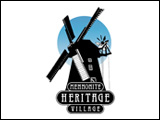Research conducted by the Prairie Swine Centre has shown including spray dried animal plasma in the diets of newly weaned piglets to be an effective strategy for mitigating the negative effects of DON contaminated feed grains.
Deoxynivalenol or DON, a mycotoxin found in fusarium head blight infected feed grains, reduces feed intake lowering the productive performance of pigs.
A study conducted by the Prairie Swine Centre looked at the value of adding spray dried animal plasma to the diets of newly weaned pigs in mitigating these negative effects.
Dr. Laura Eastwood, a research assistant nutrition, explains starting three days after weaning piglets were fed one of five dietary treatments for the entire nursery phase.
Our negative control diet contained no DON in the diet at all.
Then we had four treatment diets that contained DON contaminated wheat and the average concentration of DON in the final diet was about four parts per million.
So we had our negative control with no DON, a positive control with DON and then we had a positive control diet plus an activated clay binder, we had a positive control diet plus spray dried animal plasma and a positive control diet with both clay and spray dried animal plasma.
All pigs that were fed DON contaminated diet with no additive had a severe reduction in average daily gain and average daily feed intake throughout the trial and we found that, when we added the spray dried animal plasma into the diets, the performance of those animals was equal to or even better than those pigs feds a non contaminated diet.
At this point we need to do some further work to try and find some cost effective strategies for doing this because we used a fairly high level of spray dried animal plasma, at eight percent in these diets so our future work is looking at reducing the amount of spray dried animal plasma we need or for the period of time that we need to feed it.
For more information on this research visit the Prairie Swine Centre’s web site at prairieswine.com.



